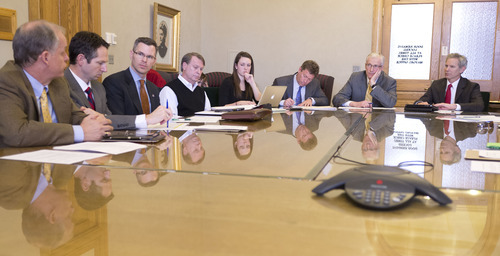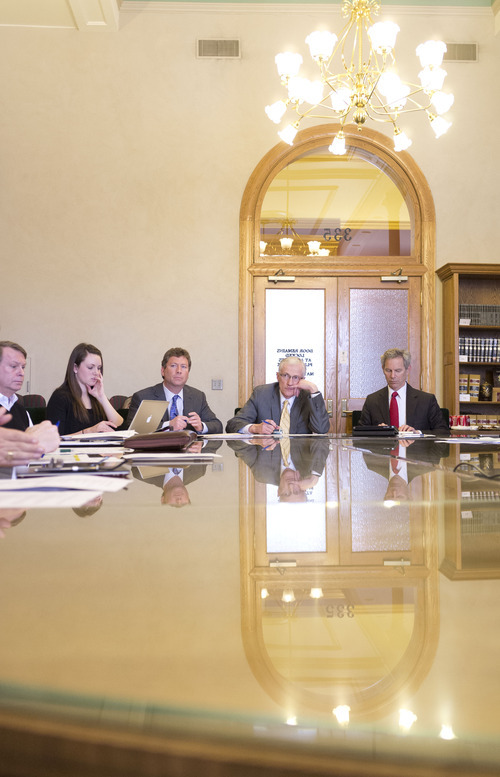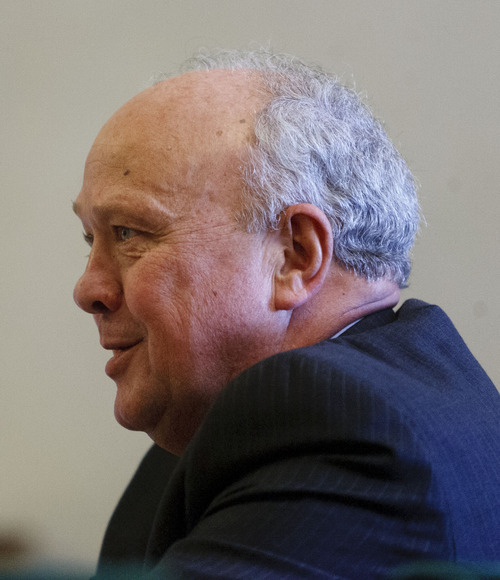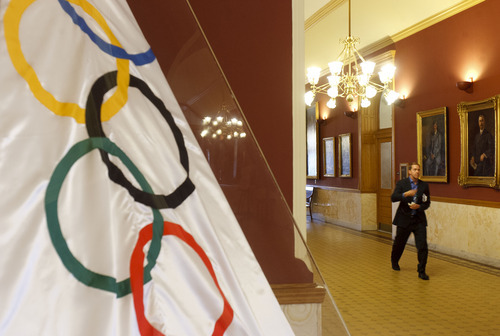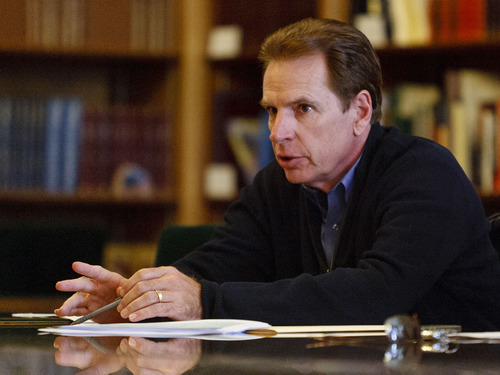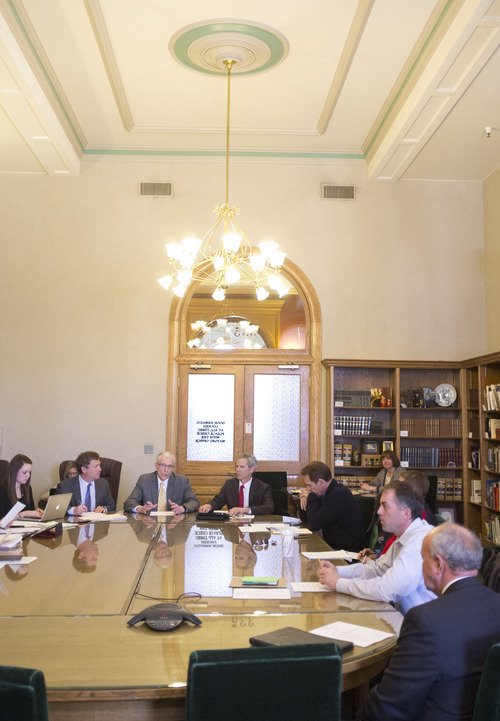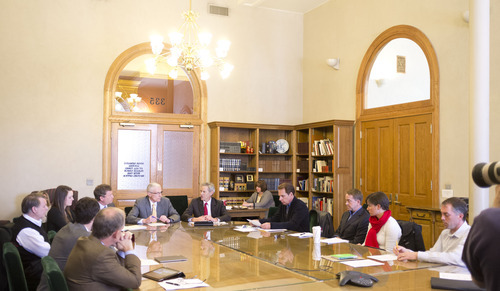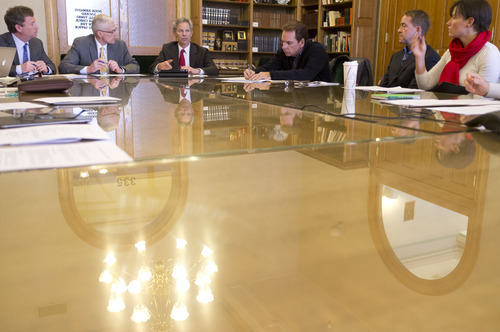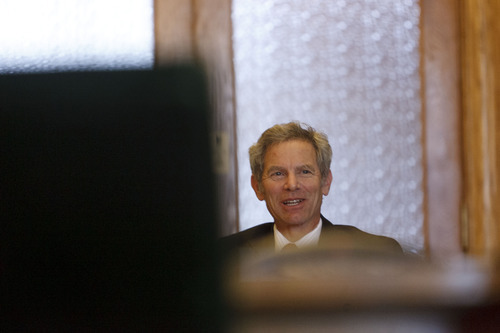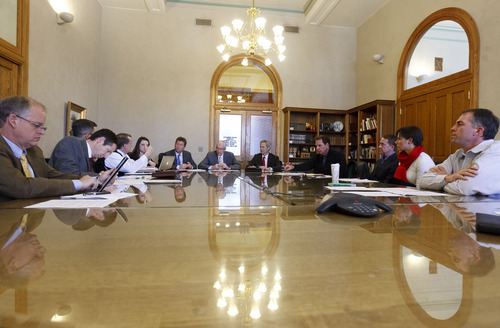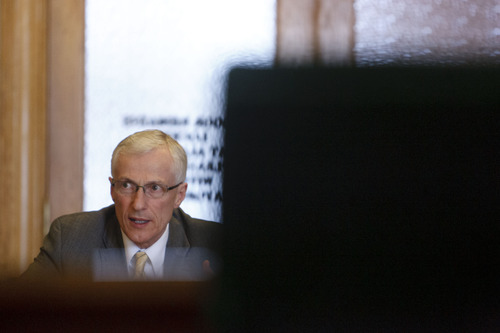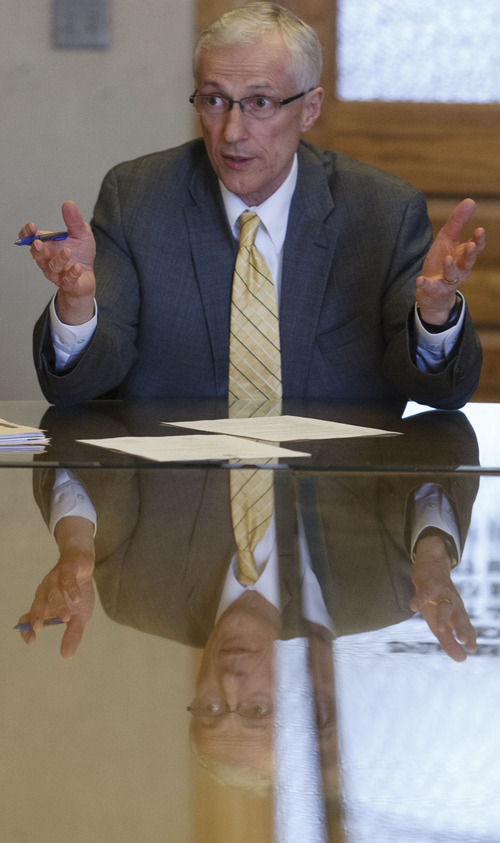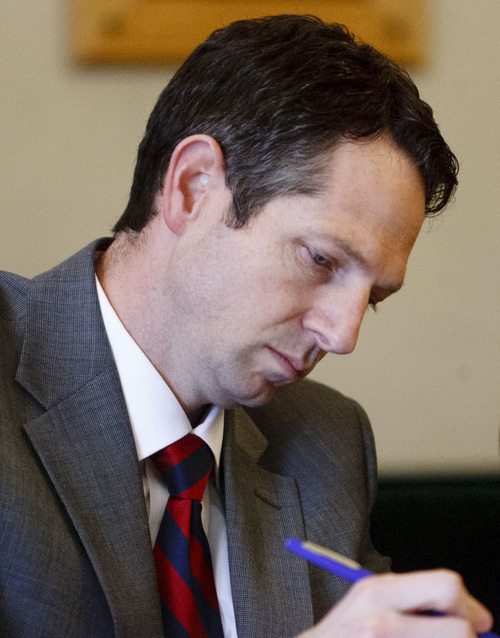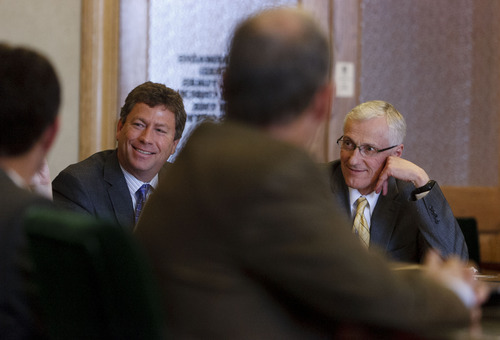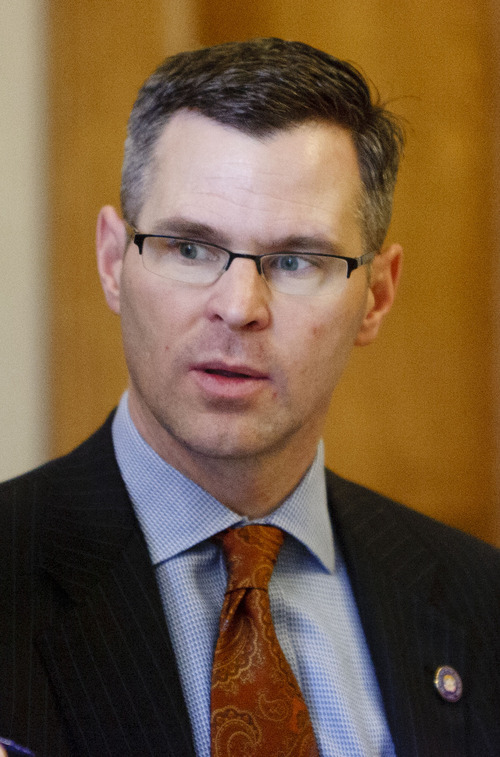This is an archived article that was published on sltrib.com in 2012, and information in the article may be outdated. It is provided only for personal research purposes and may not be reprinted.
Another Salt Lake City bid for a Winter Olympics probably would cost more than $10 million, a committee examining that possibility learned at its debut meeting Thursday.
Although expensive, that figure did not seem to cause much angst for Olympic Exploratory Committee members, mindful that the 2002 Winter Games produced a $100 million profit.
The estimate was provided by Fraser Bullock, the Salt Lake Organizing Committee's chief operating officer in 2002, who offered some preliminary numbers that suggested a Salt Lake City bid could make more financial sense than anything Denver or Reno — two other U.S. cities interested in the 2022 or 2026 Winter Games — could put forth.
Bullock's brief analysis of bid budgets for the three cities vying for the 2018 Winter Olympics, awarded last year to Pyeongchang, South Korea, indicated it would cost about $1.5 billion to run the 2022 Games. That money would come from broadcast rights and sponsorships.
But since Salt Lake City already has ski jumps, a bobsled-luge track and a speed-skating oval, it would not have to bear the additional costs of building those venues — a luxury Denver and Reno don't enjoy. Bullock noted that could cost those competitors about $370 million more.
"This tells me we could do this [stage the Games] with completely private dollars," Bullock said. "Other cities can't."
The figures are preliminary, he emphasized, vowing to assemble more detailed numbers with former SLOC chief financial officer Brett Hopkins before the committee's next meeting Feb. 29.
Hopkins is one of 14 people appointed to the committee last week by Gov. Gary Herbert and Salt Lake City Mayor Ralph Becker to decide if Utah should pursue another Winter Olympics.
The committee held its first meeting Thursday in a City Hall room just down the corridor from trophy cases containing relics of Salt Lake City's first Olympic foray — SLOC's Olympic and Paralympic flags and the flag of the International Olympic Committee.
Most of Thursday's two-hour session revolved around the rules and procedures the committee would follow in completing its mandate.
For instance, because Herbert asked for a recommendation by May, committee members agreed with Lt. Gov. Greg Bell, a co-chairman, that membership should remain small, even if there is considerable interest in participating from other groups, such as the communities where events were held in 2002.
To ensure the process is inclusive and transparent, members talked about having public comment at future meetings, which could be held weekly.
Becker also suggested that his and Herbert's offices collaborate on a website that would allow the public to track developments and provide input.
At the urging of Salt Lake Chamber CEO Lane Beattie, Gov. Mike Leavitt's Olympic coordinator in 2002, Bell said he will begin discussions of the effort with legislative leaders. Their support will be necessary if, as happened in preparations for 2002, the state has to provide financial-support guarantees to Salt Lake City. Only cities can formally submit bids to the IOC.
Beattie also recommended the committee ask lawmakers for $100,000 to $200,000 in economic-development funding to support a bid campaign. But some members believed it might be better to delay asking for that money until a decision is made to bid, especially because Bullock doubted the exploratory committee's work would cost more than several thousand dollars.
That money might be needed, he theorized, to pay for a poll to gauge public support for another bid.
Utah Sports Commission President and CEO Jeff Robbins said his organization recently received $10,000 from a donor he would not identify. The money went into a "seed account for future events," he said, noting an Olympic bid fits that description. "It's nice to know it's there if we need money for a few things."
Committee members decided that for the first few meetings, they want to zero in on potential bid expenses, distinguishing between what would be needed to win the U.S. Olympic Committee's nomination and then the IOC's selection. They also want to know what additional expenses might be incurred to have Games-ready venues.
Bullock said the committee must be prepared to consider the need to bid more than once. He also expressed hope that a dispute between the International Olympic Committee and the U.S. Olympic Committee over revenue sharing will be resolved in time for an American bid in 2022.
Twitter: @sltribmikeg —
Next meeting
P The Olympic Exploratory Committee will meet at noon Feb. 29 at the Utah Sports Commission, 201 S. Main St., Salt Lake City.


